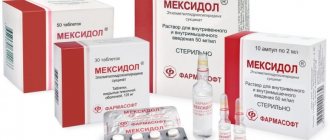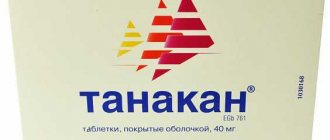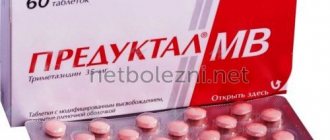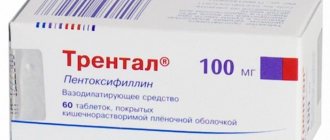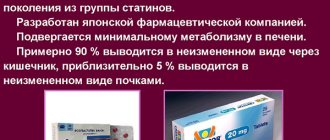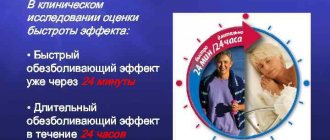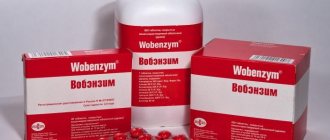Non-steroidal anti-inflammatory drugs are often used to relieve acute pain and eliminate symptoms of inflammation. Nimesil and its analogues are not first-line drugs and are recommended for use only if weaker drugs (paracetamol, diclofenac, ibuprofen) are ineffective.
According to the official instructions, Nimesil is a prescription medicine. Indications for use include moderate and severe pain of various origins (inflammatory, neurogenic, traumatic, postoperative), hyperthermia with chills, myalgia, dysmenorrhea.
Nimesil is sold in the form of a fast-dissolving granular powder, which before use must be dissolved in 150 ml of clean water to obtain an oral solution. This form of release provides the fastest possible therapeutic effect. Each sachet contains 100 mg of nimesulide, an NSAID that reduces the synthesis of inflammatory mediators such as prostaglandins, leukotrienes, and arachidonic acid. Thanks to this, it is possible to eliminate pain and reduce body temperature.
This powder is prohibited for use in the presence of such concomitant diseases as acute and chronic gastritis, duodenitis, duodenal and gastric ulcers, ulcerative colitis, aspirin-induced asthma, bleeding disorders, severe hepatic, hepatic and heart failure.
The official instructions for Nimesil provided by the manufacturer indicate that febrile fever and signs of influenza are contraindications to the use of this drug. Age limit – 12 years. The most common treatment regimen is 1 sachet as needed.
pharmachologic effect
Anti-inflammatory, antipyretic, analgesic.
Pharmacokinetics
Nimesulide is well absorbed from the gastrointestinal tract (GIT).
The maximum concentration in blood plasma (Cmax) after oral administration of a single dose of nimesulide, amounting to 100 mg, is achieved on average after 2 - 3 hours and is 3-4 mg / l. Area under the concentration-time curve (AUC) and a decrease in the cumulative excretion of furosemide without changing the renal clearance of furosemide.
Cost of Nimesil and its analogues
Nimesil is an imported drug; it is produced by several pharmaceutical companies - Laboratorios Menarini (Italy) and Fine Foods & Pharmaceutical (Spain). This is one of the first nimesulide-based drugs registered in Europe. At the moment, a large number of generics have appeared on the market, which have the same clinical effect, but have a lower cost.
| Region | The drug and its release form, price in rubles | ||||
| Nimesil in sachet No. 30 | Aponil, 20 tablets of 100 mg | Nimika 0.1 No. 20 | Nise, bags, 9 pcs. | Nemulex, granules in bags, 30 pcs. | |
| Moscow and region | 740-765 | 180-200 | 210-221 | 245-260 | 490-520 |
| Saint Petersburg | 721-796 | 175-202 | 198-216 | 230-256 | 510-521 |
| Irpen | 699-754 | 181-221 | 195-206 | 236-260 | 489-560 |
| Volgograd | 702-787 | 169-198 | 199-231 | 220-260 | 512-536 |
Nimesil dosage
Inside. The contents of the sachet are dissolved in approximately 100 ml of water at room temperature (a white or light yellow suspension is formed).
The prepared solution cannot be stored.
The drug Nimesil® is used only for the treatment of patients over 12 years of age.
Adults and children over 12 years old: 1 sachet twice a day, after meals.
Elderly patients: when treating elderly patients, the need to adjust the daily dose is determined by the doctor based on the possibility of interaction with other drugs.
Patients with renal insufficiency: in patients with mild to moderate renal insufficiency (creatinine clearance 30-60 ml/min) no dose adjustment is required, while in patients with severe renal insufficiency (creatinine clearance <30 ml/min) Nimesil ® is contraindicated.
Patients with liver failure:
The use of Nimesil® in patients with liver failure is contraindicated.
To reduce the likelihood of side effects, it is recommended to take the minimum effective dose for the shortest possible time.
The maximum daily dose for adults and children over 12 years of age is 200 mg.
The maximum duration of treatment is 15 days.
Inexpensive substitutes for Nimesil powder
If you need to quickly eliminate pain or fever, it is rational to use the drug in powder. This ensures high bioavailability of the drug and the fastest possible clinical effect. Sachets containing a single dose can be purchased individually at pharmacies.
Nise
Belongs to the group of non-steroidal anti-inflammatory drugs. The active ingredient is nimesulide. The chemical properties are sulfonanilide, and the mechanism is associated with blocking type 2 cyclooxygenase receptors. Indicated for the treatment of lumbago, gout attacks, arthritis of various etiologies. The drug has a fairly large number of side effects, which is associated with high hepatotoxicity, therefore it is not recommended in routine practice and is a second-line therapy.
Produced by the pharmaceutical company Dr. Reddis, India. A special feature is the presence of several forms of release:
- Sachets of granulated powder for preparing a solution, 2g;
- Enteric tablets;
- Oral suspension.
The drug can be used by children over 7 years of age with strict adherence to the instructions and constant medical supervision.
Nemulex
The drug is packaged in the Russian Federation by Sotex PharmFirma, which carries out control before sale. Raw materials based on nimesulide are produced in Romania at the Rompharm Company plant.
Release form: dry powder in the form of granules. After dissolution in water, a homogeneous suspension with a pleasant orange taste and smell is formed. The drug is used as symptomatic treatment of diseases that are accompanied by severe pain - osteochondrosis, arthrosis and arthritis, bursitis, myalgia, toothache and headache, radicular syndrome. It is prohibited to use the drug during pregnancy and breastfeeding.
Possible adverse reactions include allergies, urticaria, dizziness, drowsiness, depressed emotional state, nausea, abdominal pain.
Article on the topic: Comparison of medicines Actovegin and Solcoseryl, what is the difference between them?
Nimid
An anesthetic drug based on nimesulide, which is available in sachets containing 2 g of instant powder. It belongs to non-narcotic analgesics of category B, sold by prescription.
Recommended as a second-line anti-inflammatory and analgesic agent. Effectively eliminates pain of any etiology, helps reduce signs of inflammation during infection or injury.
Produced in India by the pharmaceutical company Kusum in several dosage forms that can be combined to achieve maximum effect:
- powder for suspension;
- pills;
- gel for external use.
Overdose
Symptoms: apathy, drowsiness, nausea, vomiting, pain in the epigastric region. These symptoms are usually reversible with symptomatic and supportive therapy. Possible increased blood pressure, gastrointestinal bleeding, acute renal failure, respiratory depression, coma, anaphylactoid reactions.
Treatment: Symptomatic and supportive therapy. There is no specific antidote. If an overdose has occurred within the last 4 hours, it is necessary to induce vomiting and/or take activated carbon (60 to 100 g for an adult) and/or an osmotic laxative. Forced diuresis, hemodialysis, hemoperfusion, and urine alkalization are ineffective due to the high degree of binding of nimesulide to plasma proteins (up to 97.5%). It is necessary to monitor the state of kidney and liver function.
Analogues with a minimum of side effects
When choosing an NSAID, you need to take into account a large number of factors - the severity of pathological symptoms, age, and the presence of concomitant diseases. There are no medications without side effects, so it is very important to follow the instructions, choose the safest medications and use the minimum effective doses. You can replace Nimesil with over-the-counter analgesics, which have fewer unwanted effects and contraindications.
Ibuprofen
The international nonproprietary name is similar to the active ingredient - Ibuprofenum. According to its chemical structure, it is a derivative of propionic acid, which has a blocking effect on the COX enzyme and reduces the production of inflammatory mediators. The drug also helps eliminate fever and chills. Can be used during pregnancy and lactation as prescribed by a doctor. Special forms of ibuprofen have been developed in the form of syrup and suspension, which allows it to be prescribed to children after 3 months.
The most popular tablets from these manufacturers:
- Darnitsa, Ukraine;
- Borisov ZMP, Belarus;
- Borshchagovsky Chemical Plant, Ukraine;
- Akrikhin, Russian Federation;
- Hemofarm, Serbia;
- Tatchimpharmpreparaty, Russia.
Tablets contain 100, 200 or 400 mg of ibuprofen. The drug can be used for 2-3 weeks. Dosage regimen: 1 tablet 2 times a day, depending on the clinical situation.
Nalgesin
A modern analgesic-antipyretic containing 275 mg of naproxen in the form of sodium salt. The mechanism of action is associated with inhibition of the activity of enzymes involved in the synthesis of inflammatory mediators (prostaglandins and leukotrienes). This medicine also has antithrombotic properties. The drug has high bioavailability and is well tolerated by most patients.
According to the instructions, Naproxen is indicated for the treatment of radiculitis, ischalgia, radicular neuralgia, headache, muscle, joint and menstrual pain.
Contraindications:
- pregnancy and lactation;
- acute inflammatory diseases of the gastrointestinal tract (gastritis, duodenitis, peptic ulcer);
- intolerance to one of the components;
- bleeding disorders.
Undesirable effects when taking Nalgesin are associated with the individual characteristics of the body or an incorrectly selected dosage. They may manifest as a feeling of drowsiness and depression, abdominal discomfort, and dizziness.
The drug is produced in Slovenia by the company KRKA. A prescription is not required to purchase Nalgesin tablets.
Ketonal
The main active ingredient is ketoprofen. It is a representative of the latest generation of NSAIDs. In addition to blocking the action of all types of COX, it has the ability to inhibit the enzyme lipoxygenase. As a result, the concentration of bradykinin, prostaglandin and other inflammatory mediators decreases.
Indications for use:
- hyperthermia;
- infectious and inflammatory diseases of various localizations;
- acute and chronic pain.
The drug is contraindicated in cases of aspirin intolerance, bronchial asthma, gastric and duodenal ulcers, and increased bleeding.
Ketonal is available in capsules and tablets of 25, 150 and 200 mg. The presence of an injection form and a variety of dosages allows you to select the minimum effective dose, method and frequency of use of the drug. Ketonal can be used either as symptomatic therapy once or in a course of 2-3 weeks. Manufacturer: Lek DD, Slovenia.
Precautionary measures
Carefully
Arterial hypertension, diabetes mellitus, compensated heart failure, coronary heart disease, cerebrovascular diseases, dyslipidemia/hyperlipidemia, peripheral arterial disease, hemorrhagic diathesis, smoking, creatinine clearance 30-60 ml/min.
History of ulcerative lesions of the gastrointestinal tract; history of infection caused by Helicobacter pylori; elderly age; long-term previous use of NSAIDs; severe somatic diseases.
Concomitant use with the following drugs: anticoagulants (for example, warfarin), antiplatelet agents (for example, acetylsalicylic acid, clopidogrel), oral glucocorticosteroids (for example, prednisolone), selective serotonin reuptake inhibitors (for example, citalopram, fluoxetine, paroxetine, sertraline).
Reviews from doctors and patients
- Andrey Viktorovich, dentist: “After opening the gumboil and removing a tooth, I always recommend that my patients take Nimesil, in addition to the antibiotic. After the anesthesia wears off, it effectively eliminates discomfort and swelling of the gums.”
- Marina: “After cauterization of the cervical erosion, terrible pain appeared in the lower abdomen. The doctor advised me to drink a packet of Nise powder and then take these pills for a few days. It helped very quickly and well.”
- Stepan: “Previously, at the first symptoms of colds and flu, I took Nimid in powder, but then problems with the liver began, I had to choose a more gentle drug. I switched to regular ibuprofen in domestically produced capsules. It relieves fever just as quickly and costs much less.”
When choosing a fast-acting analgesic, you should pay attention to the drug Nimesil; however, when using it, you need to familiarize yourself with the contraindications. This powder can be replaced by safer drugs, so the risks need to be assessed and compared with the expected benefits of its use.
Use of Nimesil powder: indications and contraindications
The medicine is used to suppress pain, inflammation, and associated symptomatic manifestations. In the instructions for use, the manufacturer recommends taking Nimesil for the following indicators:
- for pain accompanying osteoarthritis;
- painful sensations arising from injuries, inflammation in the joint capsule and tendons;
- algodismenorrhea.
The list of contraindications for the use of Nimesil is presented:
- bronchospasm, rhinitis, symptoms of urticaria that occur in response to taking NSAIDs or aspirin;
- performed coronary artery bypass surgery, therapy with hepatotoxic medications;
- inflammatory pathologies of the intestinal tract;
- elevated temperature due to inflammatory and infectious pathologies;
- transition to the acute phase of the ulcer, spontaneous hemorrhages in the gastrointestinal tract;
- a combination of allergies to NSAIDs, nasal polyps and chronic inflammation of the respiratory tract;
- local hemorrhages;
- decompensated kidney or heart failure;
- disorders of blood clotting rate;
- potassium deficiency, liver pathologies;
- alcoholism, drug addiction;
- period of pregnancy or breastfeeding;
- children under twelve years of age.
Particular caution when taking is necessary for patients:
- with severe form of non-insulin-dependent diabetes;
- hypertension or ischemia;
- AHF, dyslipidemia;
- lesions of peripheral arteries;
- ulcers, somatic diseases in the period of decompensation.
The medication requires medical supervision with prolonged use of NSAIDs, oral glucocorticosteroids, and antiplatelet agents. Problems with therapy can be caused by smoking and simultaneous treatment with drugs that slow down the rate of blood clotting.
